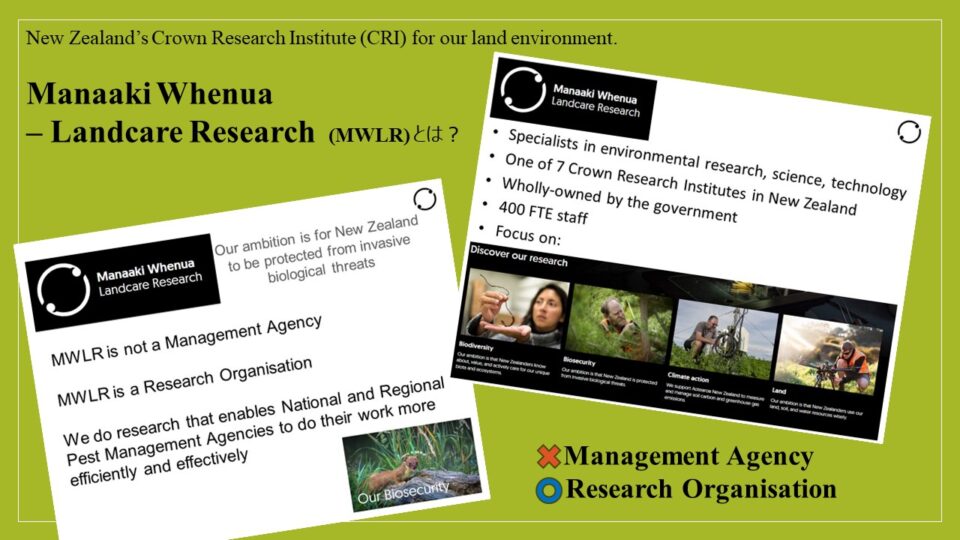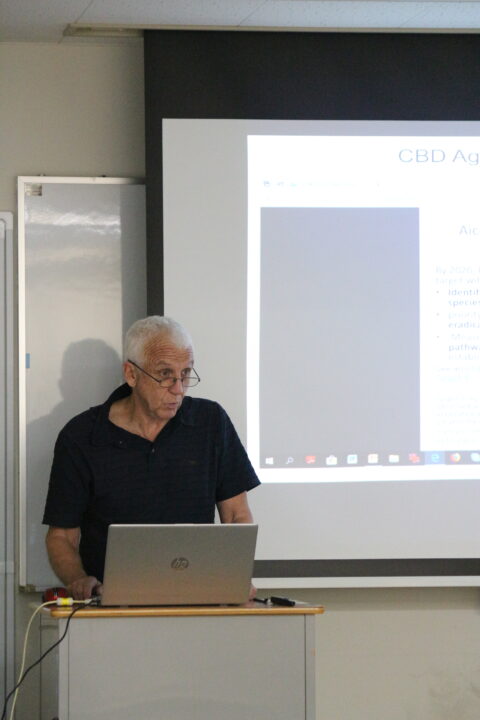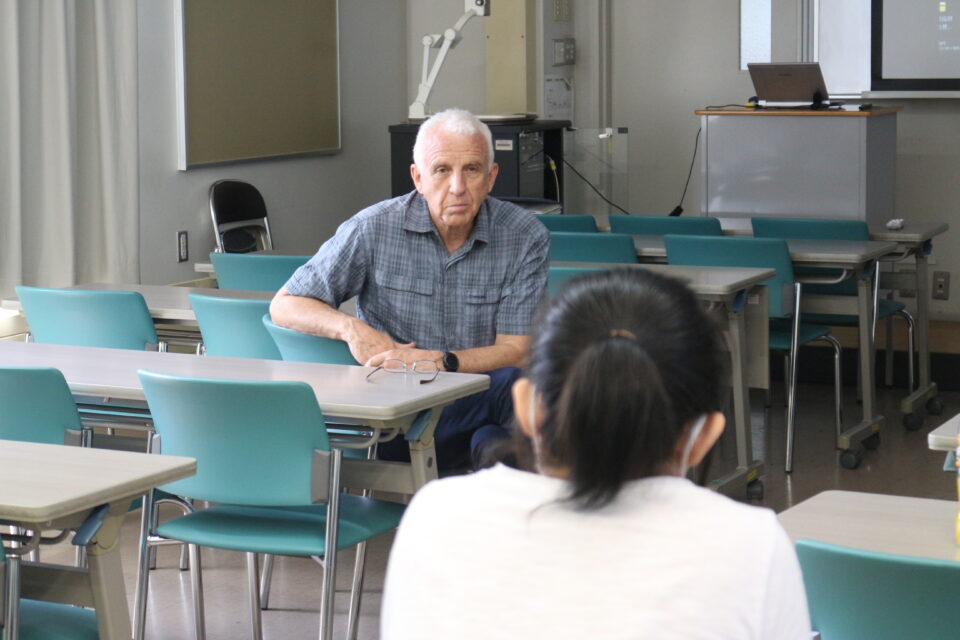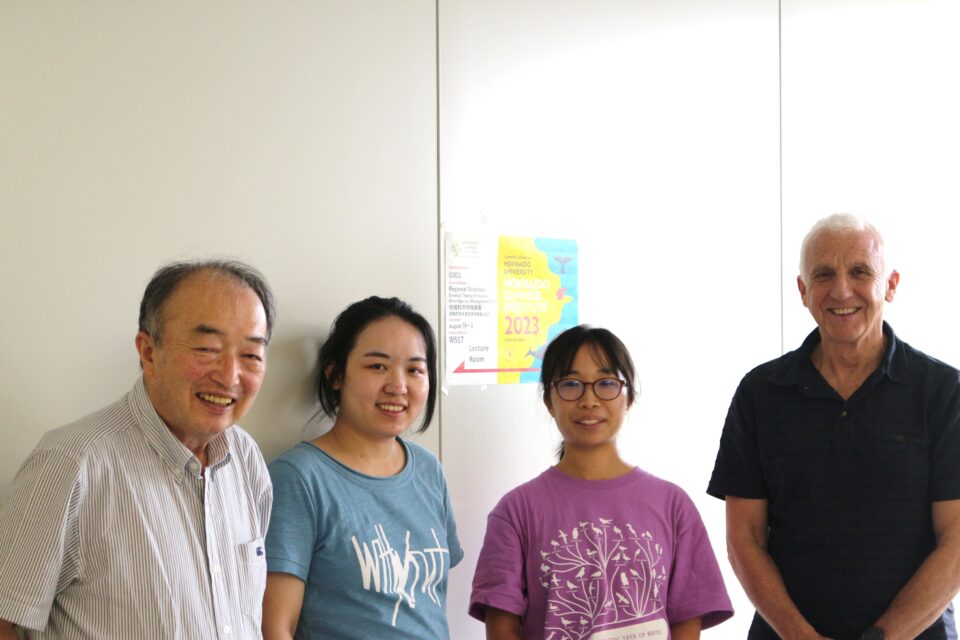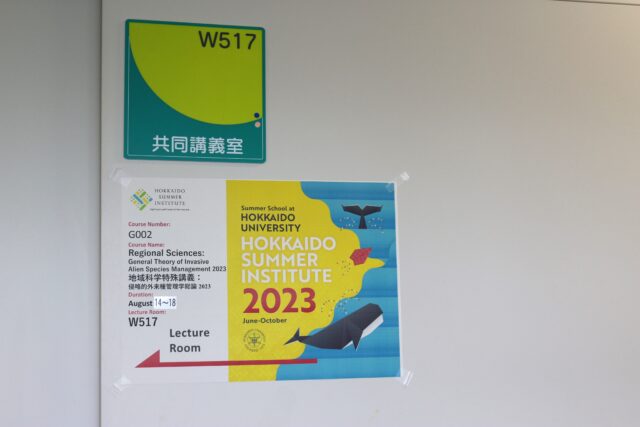From August 14 to 18, the Hokkaido Summer Institute (HSI) 2023 course “Regional Sciences (Lecture): General Theory of Invasive Alien Species Management 2023” was offered by the Graduate School of Humanities and Human Sciences.
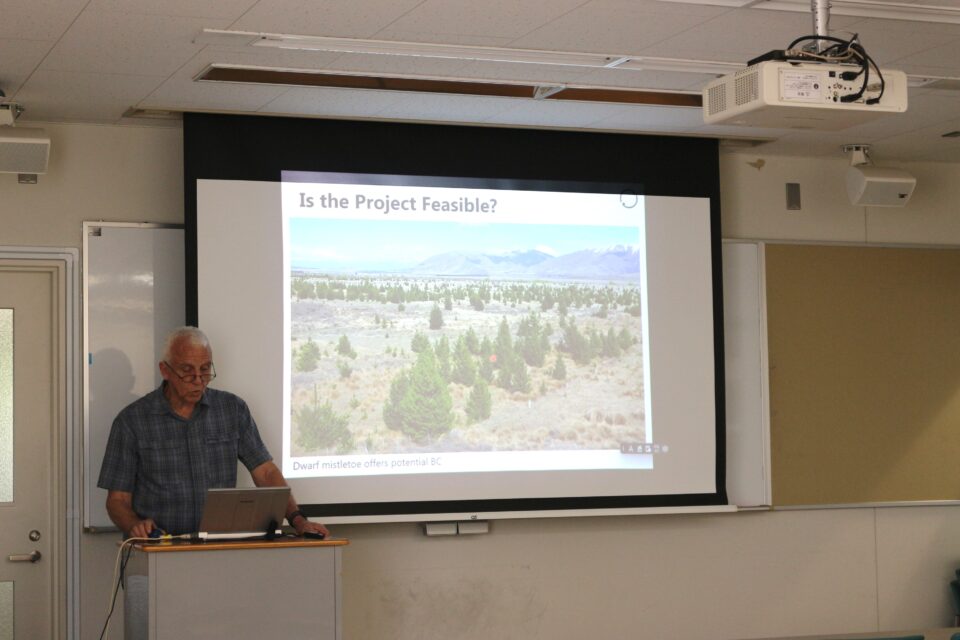
The lecturer for the course was Mr. Bruce Warburton from Landcare Research (Wildlife Ecology & Management) in New Zealand, whom we have been inviting as a lecturer since 2022. He was the successor to Dr. Phil Cowan, also from Landcare Research, whom we had invited as a lecturer from 2017 to 2021, excluding 2020, when the course was canceled due to the Covid-19. Landcare Research, officially Manaaki Whenua–Landcare Research, was established by the Government of New Zealand, serving as a prestigious research center specializing in soil and biodiversity. Mr. Warburton has long been engaged in cutting-edge research on measures for invasive alien species management in New Zealand, including the implementation of such measures. During the course, various cases he has been involved in over the years were introduced, using images, episodes, and statistics.
The course, designed for graduate students, aimed to help them acquire fundamental knowledge and skills related to invasive alien species (IAS) management, a pressing global issue. It was also aimed at providing students with the opportunity to gain insights into the frameworks necessary for addressing IAS issues in New Zealand, a country at the cutting edge of this discipline, as well as the current situation in Japan. This was the fifth time the course was held for graduate students.
In the lectures, Mr. Warburton introduced cases not only from New Zealand, but also from various other countries. Throughout the course, he continually raised the question of what constitutes a harmful invasive species. Building upon this, the course examined various animals and plants considered as invasive species, their habitats, and their relationships with human societies, which differ among various cases, countries, and regions. Students explored how to manage and control those species, reflecting on what actions they could take themselves, with reference to examples of both successful and failed management attempts.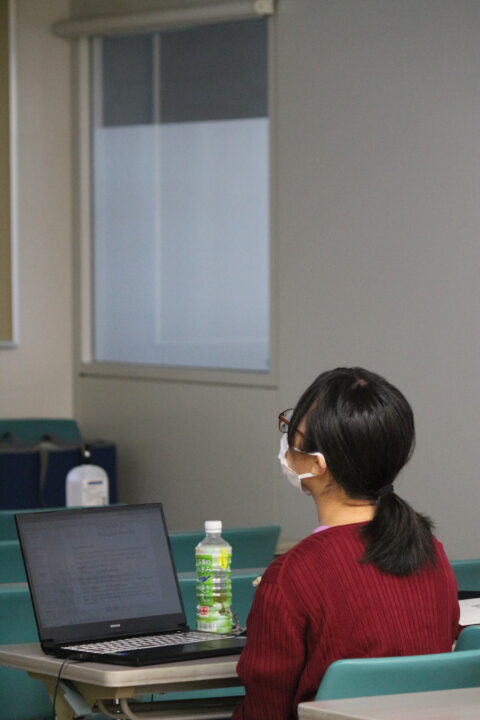
In the five-day intensive course, students explored a wide range of challenging cases from around the world. These included not only the latest examples of problematic weeds, insects, and mammals in New Zealand, but also problems with raccoons in Japan, a research theme of Professor Ikeda, the host lecturer of this course. The lectures also explored criteria for classifying a species as a pest, presenting various examples of alien species, including those deemed harmful by humans but posing no harm to other animals or plants in the ecosystem, as well as those that are harmless to humans but harmful to native or endemic species. Furthermore, detailed explanations were provided on issues that even countries leading in research, such as New Zealand, struggle with, particularly in discerning what is beneficial or detrimental and in devising solutions. These included the consideration of animal welfare and cost effectiveness in eradication efforts, the permissibility of methods with uncertain long-term impacts, and problems involving laws and ethics.
At the end of each class, lecturer prompted students to think of examples similar to those discussed. The students racked their brains to answer, but when they appeared uncertain, lecturer offered easy-to-understand explanations of similar examples familiar to us, cases prevalent in some countries but not in Japan, or examples that could potentially arise in Japan. Students had the opportunity to discuss until they fully understand the lectures, leading to the fulfilling experience that is characteristic of in-person classes.
This course, taught by a researcher at the forefront of invasive alien species management and the implementation of countermeasures, will skip next summer due to the retirement of Professor Tohru Ikeda, who hosted the course. We hope to reopen this course after the summer of 2025.



